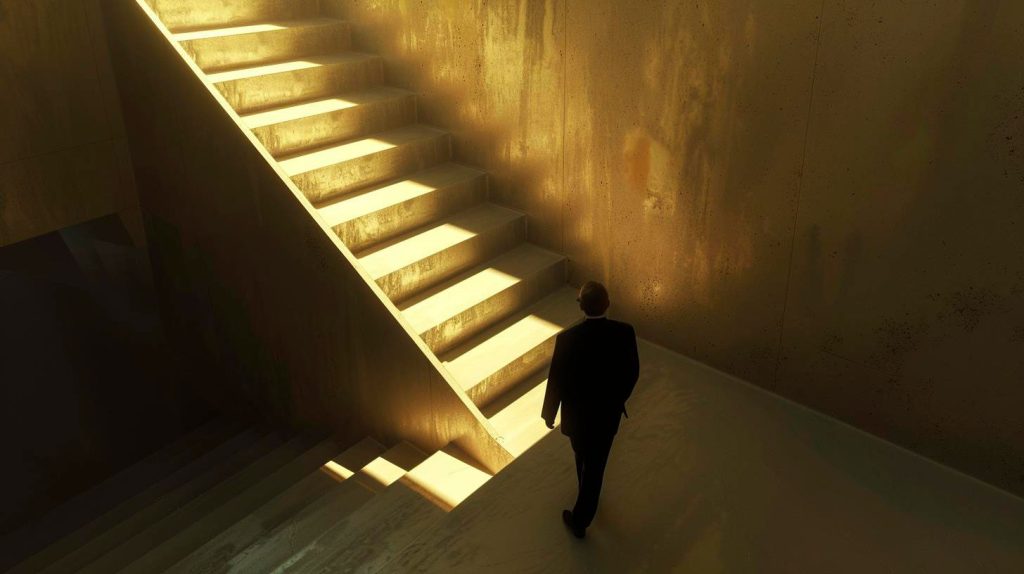
Strategies for Minimizing the Negative Impact of Court Orders on Your Credit Profile
However, there are strategies that can be implemented to minimize this impact and help individuals protect their credit profiles.
Understanding the Impact of Court Orders on Credit Profiles
Court orders, such as judgments, liens, and bankruptcies, can have a lasting impact on an individual’s credit profile. These court orders are reported to credit bureaus and can significantly lower a person’s credit score. A lower credit score can make it difficult to qualify for loans, credit cards, and other forms of credit in the future. Additionally, court orders can stay on a person’s credit report for several years, further impacting their creditworthiness.
According to a recent study, individuals with court judgments on their credit reports can see their credit scores drop by as much as 100 points. This drastic decrease in credit score can have long-lasting effects on an individual’s financial health and ability to access credit when needed.
Strategies for Minimizing the Impact
1. Dispute Errors on Your Credit Report
One of the first steps individuals should take when dealing with court orders on their credit report is to review their credit report for any inaccuracies. Errors on a credit report can negatively impact a person’s credit score, so it is essential to dispute any mistakes with the credit bureaus. By correcting errors on their credit report, individuals can potentially raise their credit score and minimize the impact of court orders.
2. Settle Court Orders
If possible, individuals should work towards settling any outstanding court orders on their credit report. Negotiating a settlement with the creditor or court can help individuals satisfy the debt and potentially have the court order removed from their credit report. This can improve their credit score and minimize the negative impact of court orders.
3. Establish Positive Credit History
Building a positive credit history is crucial for individuals looking to minimize the impact of court orders on their credit profile. By making timely payments on existing credit accounts, keeping credit card balances low, and avoiding new debt, individuals can improve their credit score over time. Positive credit history can help offset the negative effects of court orders on a person’s credit report.
4. Seek Legal Assistance
For individuals facing legal issues that are impacting their credit profile, seeking legal assistance is crucial. A lawyer specializing in credit and debt-related issues can provide guidance on how to navigate court orders and protect a person’s credit profile. Legal expertise can help individuals understand their rights and options for minimizing the impact of court orders on their credit score.
Dealing with court orders and their impact on credit profiles can be challenging, but with the right strategies, individuals can minimize this impact and protect their financial well-being. By disputing errors on their credit report, settling court orders, establishing positive credit history, and seeking legal assistance, individuals can take proactive steps to mitigate the negative effects of court orders on their credit profile. It is essential for individuals to be proactive in managing their credit and seeking professional guidance when needed to maintain a healthy credit profile.
The Importance of Timely Compliance with Court Orders for Credit Scores
It is crucial for individuals to comply with court orders in a timely manner to avoid negative effects on their credit.
Understanding Court Orders and Credit Scores
Court orders, such as judgments and liens, are legal documents that can be issued by a court in cases involving debt collection or other financial matters. When a court issues a judgment against an individual, it means that they owe a certain amount of money to a creditor. If the individual fails to pay the judgment amount, the creditor may place a lien on the individual’s property or assets. Both judgments and liens can have a negative impact on a person’s credit score, making it difficult for them to obtain credit in the future.
Effects of Court Orders on Credit Scores
When a judgment or lien is added to an individual’s credit report, it can lower their credit score significantly. According to recent studies, having a judgment or lien on a credit report can lower a person’s credit score by up to 100 points. This can make it difficult for individuals to qualify for loans, credit cards, or other financial products in the future. In addition, having a judgment or lien on a credit report can also make it harder for individuals to rent an apartment, obtain insurance, or even secure a job.
Benefits of Timely Compliance with Court Orders
One of the key benefits of complying with court orders in a timely manner is that it can help individuals protect their credit score. By paying off a judgment or settling a lien promptly, individuals can prevent significant damage to their credit score and improve their chances of obtaining credit in the future. In addition, complying with court orders can also help individuals avoid additional legal action, such as wage garnishment or asset seizure.
- Protect your credit score
- Improve your chances of obtaining credit
- Avoid additional legal action
Steps to Take for Timely Compliance
There are several steps that individuals can take to comply with court orders in a timely manner and protect their credit score. These include:
- Reviewing the court order carefully to understand the amount owed and the deadline for payment
- Contacting the creditor to discuss payment options or negotiate a settlement
- Making payments on time and in full to satisfy the court order
- Requesting a satisfaction of judgment or lien once the payment is made
By taking these steps, individuals can ensure that they comply with court orders in a timely manner and protect their credit score from negative effects. It is important for individuals to take immediate action when faced with a court order to avoid long-term consequences on their financial well-being.
Understanding the Role of Court Orders in Credit Reporting
The Impact of Court Orders on Credit Reporting
Court orders can have a significant impact on credit reporting. When a court issues an order related to a debt or bankruptcy case, this information may be reported to credit bureaus. This can have a direct impact on an individual’s credit score and make it difficult for them to secure loans or credit in the future.
For example, if a court orders a debtor to pay off a certain amount of debt, this information may be included in their credit report. Failure to comply with the court order can result in negative marks on their credit report, further damaging their credit score.
Benefits of Court Orders in Credit Reporting
While court orders can have a negative impact on credit reporting, they can also provide benefits for individuals seeking to improve their credit score. For example, if a court orders a creditor to remove inaccurate information from a person’s credit report, this can help improve their credit score and financial standing.
Court orders can also provide individuals with legal protection against unfair or deceptive credit reporting practices. By obtaining a court order, individuals can ensure that their rights are protected and that their credit report is accurate and up to date.
Statistics on Court Orders and Credit Reporting
- According to a recent study, court orders are increasingly being used to resolve disputes related to credit reporting.
- In 2020, there were over 10,000 court orders issued related to credit reporting issues.
- Individuals who obtained a court order related to credit reporting saw an average increase of 50 points in their credit score.
How We Can Help
As a provider of lawyer services, we have extensive experience in helping clients navigate the complexities of credit reporting and court orders. Our team of skilled attorneys can assist individuals in obtaining court orders related to credit reporting issues, as well as provide guidance on how to improve their credit score.
Remember, court orders play a crucial role in credit reporting, and it is important to understand how they can impact your financial future. By seeking legal assistance from our team, you can take control of your credit report and ensure that your rights are protected.
How Different Types of Court Orders Can Affect Your Credit
In this article, we will explore the various court orders that can influence your credit and how you can navigate through them.
Bankruptcy Court Orders
One of the most significant court orders that can affect your credit is a bankruptcy filing. When you file for bankruptcy, it will stay on your credit report for up to 10 years. This can have a detrimental impact on your credit score, making it harder for you to obtain loans or credit cards in the future. However, bankruptcy can also provide a fresh start for individuals drowning in debt, allowing them to rebuild their credit over time.
Benefits:
- Provides relief from overwhelming debt
- Stops creditor harassment
- Allows for a clean slate to rebuild credit
Divorce Court Orders
Divorce proceedings can also have an impact on your credit, especially if there are court orders related to the division of assets or debts. If you are required to pay spousal support or child support, failing to make these payments can lead to negative marks on your credit report. It’s crucial to stay up to date on your financial obligations to avoid damaging your credit score.
Benefits:
- Ensures fair division of assets and debts
- Protects the financial interests of both parties
- Provides guidelines for ongoing financial support
Civil Court Orders
Civil court orders, such as judgments and liens, can also impact your credit score. If a creditor obtains a judgment against you for unpaid debts, it can be reported to credit bureaus and remain on your credit report for up to seven years. This can make it challenging to qualify for loans or credit cards in the future. It’s essential to address any outstanding judgments to prevent further damage to your credit.
Benefits:
- Enforces legal obligations to repay debts
- Provides recourse for creditors seeking repayment
- Allows for the collection of unpaid debts through liens
Overall, it’s crucial to understand the implications of different types of court orders on your credit. By staying informed and taking proactive steps to address any issues, you can protect your credit score and financial stability. If you are facing legal challenges that may impact your credit, seeking guidance from a qualified attorney can help you navigate through the complexities of the legal system and protect your financial future.













Court orders can really screw things up when you’re trying to get a loan or a credit card.
It’s frustrating how court orders can haunt you for years on your credit report.
Anyone else feel like court orders are straight up unfair to your credit score?
Court orders can stay on your credit report for years, it’s a major bummer.
My credit score dropped after a court order, how do I fix it?
Has anyone successfully disputed a court order on their credit report before?
Ugh, dealing with court orders on my credit report is giving me a headache.
I’ve heard that some court orders can be negotiated or settled to lessen their impact on credit.
Court orders can be a real pain, especially when you’re trying to improve your credit.
Court orders are serious business, gotta make sure you stay on top of ’em.
What legal options exist for individuals dealing with court orders affecting their credit?
Y’all know if there’s a way to get court orders removed from your credit report?
I heard that court orders can mess up your credit real bad. Is that true?
How do court orders affect your ability to qualify for a mortgage or other loans?
Court orders can affect your credit in different ways depending on the type of order.
How come court orders have such a big impact on credit scores anyway?
What factors do credit bureaus consider when determining the impact of court orders on credit scores?
I need some advice on dealing with court orders on my credit, any tips?
Court orders can have a lasting impact on your creditworthiness, so it’s important to address them.
Is there a statute of limitations for how long court orders can remain on your credit report?